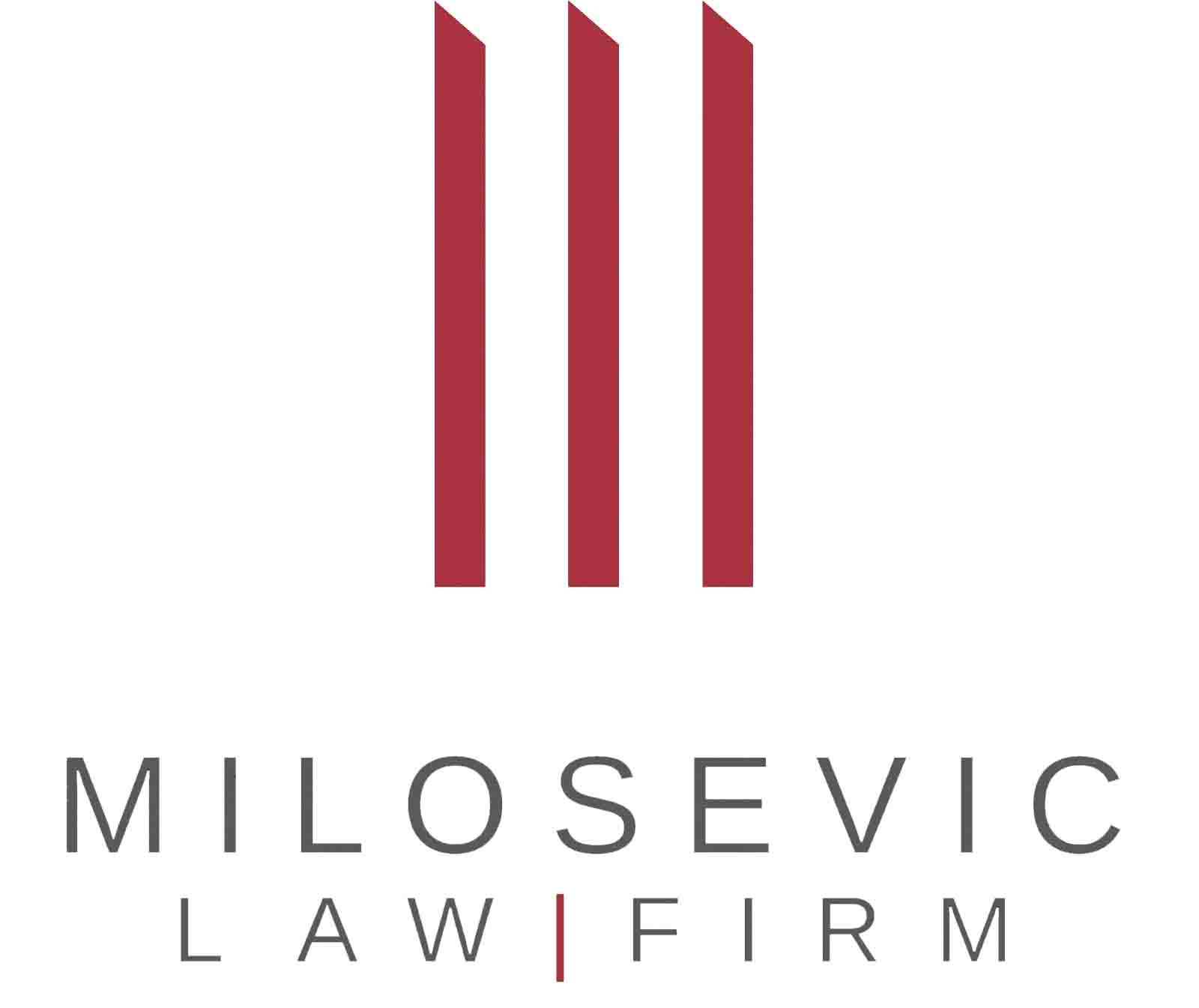If you are a large, medium, small company or a start-up company that wants to stimulate and promote the engagement of its own employees and earn their loyalty, respect, and also ensure the long-term retention of quality personnel who will grow and develop together with the company, then the financial instrument called as the Right to Acquire a Share is a legal institute that is worth paying attention to.
This method of stimulation has proven to be expedient in comparative law, both in the IT industry, and in other industries too, most often associated to start-up companies.
The reason why start-up companies, and above all ICT start-up companies, most often use this financial institute could be found in the fact that these companies have the capacity to multiply the value of the products they develop in the short term, and thus indirectly their own value, and having in view of the fact that, as a rule, we are talking about companies that at the beginning do not have the enough funds to pay competitive wages, so additional stimulation of employees is done by giving them the opportunity to become shareholders. By participating in the management and profits of the company or by selling the share acquired at a preferential price, person who have acquired the right to shares can earn income that is satisfactory concerning their involvement in development of the company, i.e. its product.
Owners of this financial instrument have the right to acquire the share in the company on a certain day, which is designated as the maturity date, at a preferential price. However, although the owners of this financial instrument will mostly be employees, this does not have to be the case, as it can also be an someone from outside the company. But, to acquire this financial instrument, it is necessary to form a reserved own share within the company. Reserved own share is a share that the company acquires free of charge from its shareholders, in order to form and grant a financial instrument – the Right to Acquire a Share.
In the definition itself, two differences can be observed in relation to own share, because the company can acquire its own share as a burden and the goal of acquisition is not specified. Another difference compared to the own share is that the reserved own share can also be formed by a single-owned limited liability company. On the other hand, there are noticeable similarities in terms of shareholder rights, namely, the company does not have the right to vote, nor are those shares counted in the quorum of the general meeting, in addition, the company does not have the right to participate in profits.
The decision on the formation of a reserved own share is made by the general meeting of the company with a two-third majority of the total number of votes, whereby the reserved own share can be formed only from the shares of those shareholders who voted for that decision. In addition, the reserved own share can only be formed from the shares (monetary or in-kind) of current shareholders that have been fully paid or entered. After the Serbian Business Registers Agency performs the registration of the reserved own share based on the decision on the formation of the reserved own share and the express written consent of those shareholders whose shares are reduced, the company acquires the reserved own share. The consequence of the registration is that the shares of the shareholders who gave their consent are reduced. The company can form several reserved own shares with the restriction that the percentage of participation of all reserved own shares cannot exceed 40%. The possibility of forming several different reserved own shares arises because all financial instrument issues arising from one reserved own share have the same due date and the same term for payment of the price. After the registration, the conditions were met to issue a financial instrument form the reserved own share – the right to acquire the share.
A financial instrument – the Right to Acquire a Share is issued based on a decision on issuance of a financial instrument – the Right to Acquire a Share, which is primarily within the competence of the company’s general meeting, but this competence could also be transferred to the director or the supervisory board in the case of bicameral governance adopted by the Memorandum of Association.
The company is obliged to submit the Decision on Issuance of the Financial Instrument – the Right to Acquire a Share to the Central Registry, Securities Depository and Clearing within five working days from the date of its adoption, so that the Central Registry, Securities Depository and Clearing will enter and register the financial instrument to the legal owners. The registration of the Central Registry, Securities Depository and Clearing has a constitutive effect, which means that as from the moment of registration, the owner of the financial instrument – the Right to Acquire a Share becomes its legal owner.
Regarding the legal nature of this type of financial instrument, it is important to emphasize that it is a non-transferable financial instrument, which gives its owner (this financial instrument is not transferable) the right to acquire a certain percentage of shares in the company on a certain day at a certain price, without the possibility of members to use pre-emption right over acquisition of shares. Therefore, the right to acquire a share is related to the personality of the owner of the financial instrument, precisely because of this, the financial instrument – the Right to Acquire a Share cannot be pledged or inherited.
However, for a person to acquire this financial instrument, it must give its consent for acquisition, and this consent includes:
1) acceptance of the due date of the right to acquire shares,
2) the agreed share purchase price,
3) the conditions under which that right can end before the due date.
On the due date of the financial instrument, the registered owner acquires the right to purchase the reserved own share of the company at a preferential price. The deadline for the payment of the purchase price is determined by the decision on the issuance of the financial instrument, while the Companies Act explicitly stipulates that the deadline cannot be shorter than 15 days nor longer than 30 days from the maturity date. If the owner of the financial instrument pays the preferential price of the reserved own share within the period indicated in the decision or within the period provided by the law, the financial instrument – the Right to Acquire a Share is realized and the owner will acquire the share in the company, i.e., conversion from right over financial instrument into a right over the share. Failure to do so may result in the financial instrument being voided. In that situation, the company’s general meeting or other competent body stipulated by the Memorandum of Association can decide to cancel that financial instrument, and it is deleted from the Central Register. One thing we want to stress our is the fact that the percentage of shares that are to be acquired may differ from what was initially foreseen because the company may, in the meantime, to withdraw and cancel some of the shares or there may be a new shareholder joining the company, or an increase in the shares through recapitalization, etc. In that way, the expectations of the owner of this financial instrument can be let down, so caution is required when agreeing on this legal transaction. In this sense, you should hire a professional who will point out all the risks of this legal work and negotiate such conditions that the very act of acquiring shares does not bring any unpleasant surprises.
Furthermore, it may happen that a certain number of financial instruments from the same reserved own share are realized, while others are not. Then the competent body of the company can decide to void the remaining unused part or use it for new emissions. If the company nevertheless decides to void the remaining unused part of the reserved own share, it is obliged to implement a simplified procedure for reducing the share capital (without applying the provisions on the protection of creditors).
Exceptionally, it may happen that the financial instrument – the Right to Acquire a Share are due even before the due date in case of liquidation, company consolidation and change of legal form. For this reason, the Company Act explicitly stipulates that the financial instrument is due before the due date, namely on the day following the publication of the announcement on the initiation of the liquidation procedure, i.e. the opening of the voluntary liquidation procedure, on the day following the publication of the draft contract on the change of status i.e. the distribution plan in the event of a change of status, that is, the day after the publication of the proposed decision on the change of legal form on the website of the Serbian Business Registers Agency. Then the deadline for paying the price to the company for the acquisition of shares is 40 days from the day of the early due date.
The Company Act also prescribes the right of the owner of the financial instrument to file a lawsuit within six months to determine the status of the shareholder and the percentage of shares that the owner of the financial instrument acquires, or a lawsuit to determine the compensation that the company is obliged to pay to the owner of the financial instrument in case that the company does not register the acquisition of shares based on a financial instrument within 60 days from the date of expiry of the deadline for payment of the price. Then the court determines the compensation according to the market value of the share that the owner of the financial instrument would have the right to acquire on the due date.
In addition, the Company Act also provides for judicial protection in case of the death of the owner of the financial instrument, whereby the heirs have the right to demand payment of compensation from the company in the amount of the market value of the shares that the owner of the financial instrument would have the right to acquire on the due date. An essential condition for the realization of this right of heir is that the owner of the financial instrument has paid the price for the acquisition of shares, thereby showing his consent to become a member of the company, as well as that the due of the financial instrument has occurred. The person who could claim compensation from the company would be those who have been designated as heirs to the decedent’s property by a final probate decision. If the company did not respond positively to the request of the heirs, they could initiate proceedings before the court for compensation of damages within three years.
The Company Act protected the registered owner of the right to acquire shares even in the situation where the financial instrument is unfounded voided before the due date. Then the owner of the financial instrument – the Right to Acquire a Share has the right to demand the payment of compensation in the amount of the market value of the share that he would have the right to acquire on the due date, but which is reduced by the amount of the price that he would be obliged to pay for the acquisition of the share.
In particular, the tax aspects of the reserved own share must be taken into account, considering that there is no limitation regarding the categories of person who are eligible to acquire the status of the owner of the financial instrument – the right to acquire a share, but if it was an employee as the owner of the right, then the tax treatment of earning would apply.
However, the general rule is that capital gains tax is paid on every transfer of shares, and transfer, in the sense of the Law on Personal Income Tax is considered a sale or other transfer with monetary or non-monetary consideration. In this regard, the Ministry of Finance, in its official opinion, provided for the absence of the obligation to pay capital gains tax on the transfer without compensation of a part of the share that the owner, a natural person with 100% of the share, makes to the company for the purpose of forming a reserved own share of the company for the purposes of issuing a financial instrument.
Namely, the Law on Personal Income Tax prescribes that capital gain represents the difference between the sale price of rights, shares and securities and their purchase price, realized by the transfer of shares in the capital of legal entities, shares and other securities.
Bearing in mind the above, the transfer without compensation of a part of the share carried out by a natural person who owns 100% of the share in a company, for the purpose of forming a reserved own share of the company for the purposes of issuing a financial instrument – the Right to Acquire a Share, is not considered the transfer in the sense of the Law on Personal Income Tax on which the income of citizens that is taxed by capital gains tax is generated, given that the natural person does not generate income (as the difference between the sale and purchase price of shares) that would be subject to taxation by capital gains tax.




